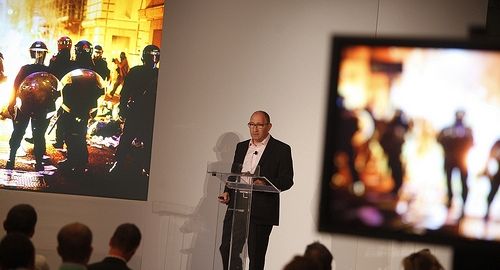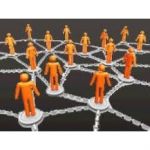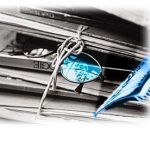But when we elevate ourselves beyond the everyday – and try and paint a macro picture of Trust, one thing is abundantly clear: ‘perfect’ trust is simply no longer attainable. We have always known that Trust is there to be earned, not bestowed, and that earning trust has never before been as tough and as danger‐strewn. Trust takes years to build but can be lost in a matter of days. The BP experience is a sobering one: in a stakeholder world, BP lost touch with all of theirs.
To add to the complexity, we now live in an age of disbelief, as well as one of complexity. This quote from the Wall Street Journal’s Peggy Noonan following the death of Osama bin Laden, is apposite: “Here is the fact of the age. People believe nothing. They believe everything is spin and lies. When people believe nothing, they believe anything”.
Noonan’s sobering words throw down the ultimate challenge to the communications professional. Never trust us, perhaps, for we are nothing but spin and lies? Or trust us, because we can help fill the void; we can help navigate the complexity; we can celebrate this complexity in all its dimensions.
This latter point is my challenge to this conference. If we fail to embrace and celebrate this new complexity then we are not deserving of people’s trust. Equally, in order to answer the question ’who do we trust?’, we have to properly understand the macro dynamics which are driving this new complexity.
I think there are six key considerations here.
First, there is the shift from a Shareholder to a Stakeholder society. A few years ago, Trust Barometer data would tell us that a company would be trusted if it maximized financial return for its shareholders. Now, ‘financial returns’ has tumbled from tenth to first of key considerations. Trusted companies are those who consider the interests of multiple stakeholders. Will Hutton was right when he called it back in 1995. And Milton Friedman was wrong when he (infamously) claimed that the social responsibility of business is to maximize profits. This is no longer enough. Today’s value is about shared values – just as today’s definition of an engaged world (the Edelman take on Public Relations) is about advancing shared interests in an inter‐dependent world.
In this context, it is no surprise to see those companies which not only talk Shared Values but walk‐the‐walk also, rising high in theTrust stakes: Look at Wal‐Mart; or PepsiCo with ‘Performance with Purpose’; Unilever with its Sustainable Living Plan; GE with ‘Eco’ and ‘Healthy Imagination’. Companies such as these not only understand that Trust is earned from multiple sources but also that sharing the values and activating for a common good is a clear trust‐builder. Investor Relations remain vital. But they are not the only relations a company has.
The second macrotrend recognisesthe oscillating fortunes of governments. In a democratizing Social/Digial world, e no longer trust Governments to ‘do the right thing’. Whereas once Governments provided something of a trust certainty, no longer is this the case. You only have to look to the predicaments of Obama or Merkel, to Greece or to Ireland, to get a sense of how this now plays out. Trust is complex and fragile because one of the great Trust institutions – Government ‐ is crumbling, most notablyin the West. Recent (Gallup) data from the US is beyond sobering: the Federal Government currently ranks lowest among25industries– and the fall from grace is catastrophic: from 41% positive in 2003 to 17% positive in 2011; from 35% negative in 2003 to %63 negative in 2011.
Third, we are witnessing the continued rise of Civil Society and of Citizenship. Over the twelve years of the Barometer’s findings, we have seen the inexorable rise of Trust in NGOs, perhaps filling the leadership and ‘principles’ void created by Government and Business. In 2011, for the very first time, we saw the confluence of Trust in NGOs across the US, China and Europe. NGOs have long led the field in ‘Who Do We Trust’ – a paradox, for sure, given that these are often un‐elected and non‐accountable, single‐issue organisations.









